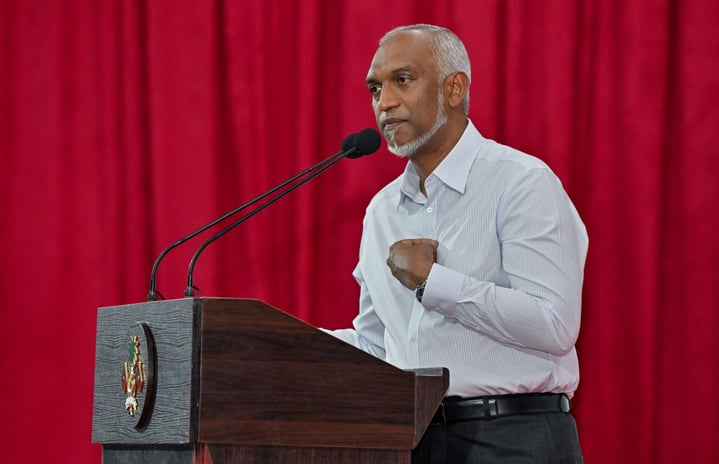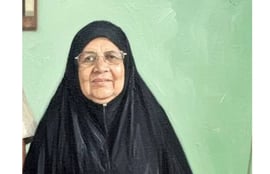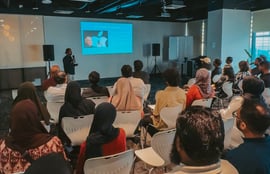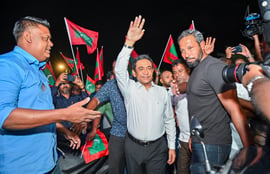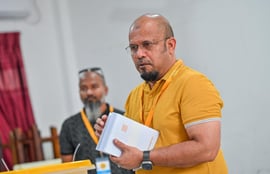President Dr. Mohamed Muizzu has stated that reporting true news and speaking truthfully is allowed in the Maldives, and there are no restrictions on doing so. However, he emphasized that there will be zero tolerance for rumors or false news in the country.
He made these remarks during his address in V. Felidhoo, as part of his ongoing tour of four atolls in the region. In his speech, the President focused on media and broadcasting, amid growing concerns from journalists and broadcasters following the ratification of the Media and Broadcasting Regulation Bill last Thursday.
Despite the government's stance, the Journalists’ Association has declared it will not comply with the new law.
"I will not allow anyone to challenge the laws or act against them. That is not something I can permit, and it certainly does not align with the oath I have taken," The President
President Muizzu stated that he took office to maintain law and order, and that all citizens are equal in the eyes of the law and must abide by it. He reiterated that he took an oath to protect and serve the country within the bounds of Islamic Shari’ah, and will not stray from the law or yield to external pressure.
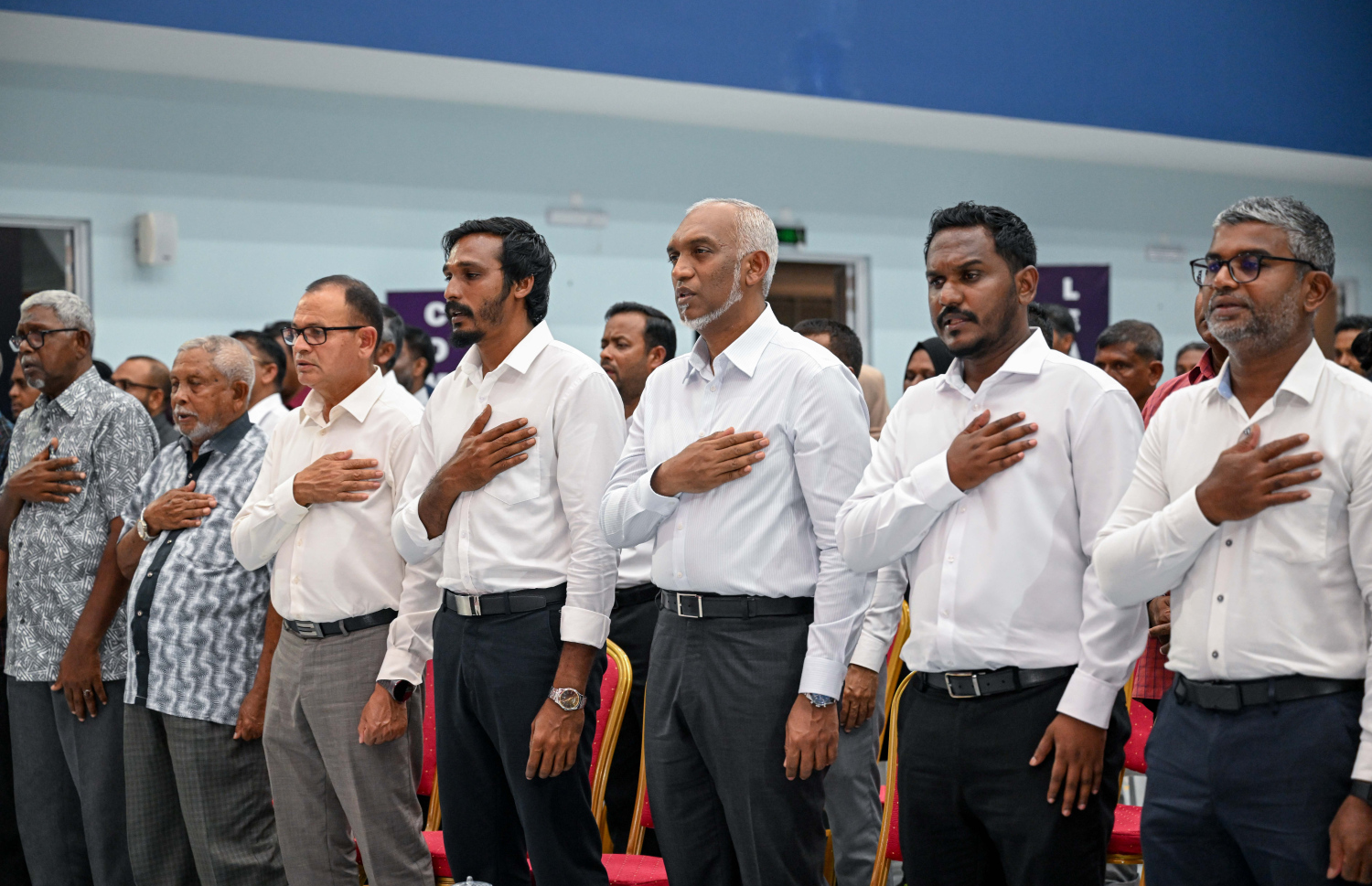
"I will not allow anyone to challenge the laws or act against them. That is not something I can permit, and it certainly does not align with the oath I have taken," the President said.
He stressed that there are no obstacles to reporting the truth or delivering factual news to the public. Journalists, he said, are free to write and report as long as their reporting is based on facts.
“Journalists should write about everything, report on whatever they want, as much as they want. But what they can’t do anymore is write false, slanderous news. They can’t write about anyone without verification,” he said. “The people of the Maldives will not accept unjust reporting. We want to be a peaceful, united, compassionate, and respectful society.”
The President also denied rumors that social media will be controlled or banned under the new Media Regulation Act. He labeled such claims as false and said they were intended to sow chaos and distrust toward the administration.

"The Holy Qur’an says that sedition is worse than murder. We are Muslims. Do you think it is acceptable to challenge the Qur’an and write whatever you please? I will not allow that in this country, no matter how many statements you issue,” he said.
He reiterated that media professionals can act responsibly and report the truth. According to him, the Media Regulation Bill supports responsible journalism while curbing the spread of false or unverified stories.
He argued that freedom does not include the right to lie or defame others. “How many families have been destroyed and broken up because of stories written without fact-checking? We must accept and practice the rules of Islam, because we are Muslims,” he said.
In response, many journalists and media associations have raised concerns about the Media Regulation Bill, which was introduced by Abdul Hannan Abubakuru, Member of Parliament for Thulhaadhoo Constituency. The Maldives Media Council (MMC) and the Maldives Journalists Association (MJA) have called for the bill to be withdrawn entirely.
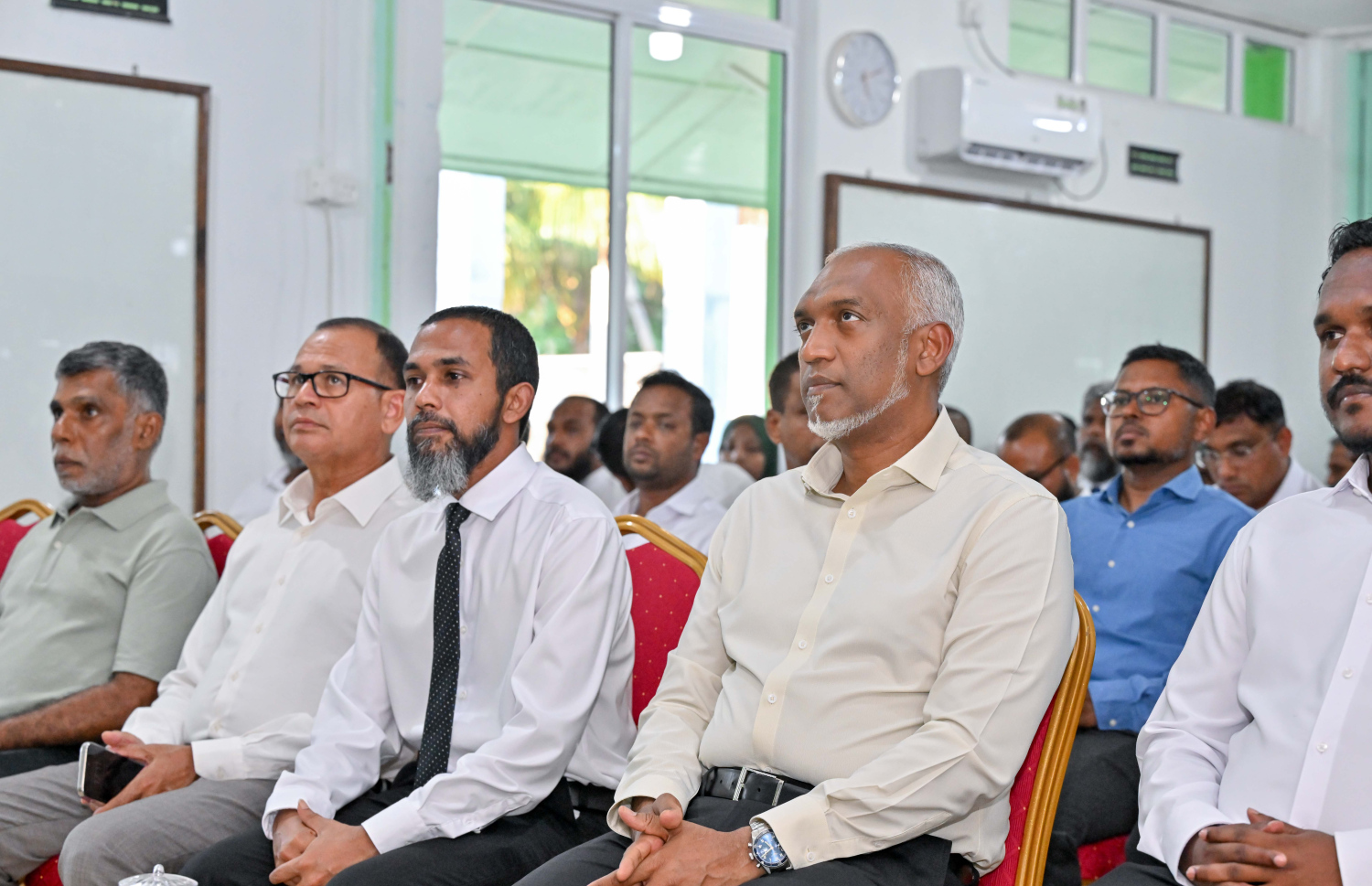
The bill includes a clause stipulating that if a media worker or journalist violates the Act’s code of conduct, they must publicly apologize and publish a correction within a timeframe specified by the commission.
If a newspaper or magazine is found to have violated the code of conduct established under the Act, penalties will be issued based on the severity and scope of the offense. Fines range from MVR 5,000 to MVR 100,000.
Journalist groups argue that a government-regulated media system is unnecessary and that a self-regulatory system would be more appropriate.
